Belt and Road
Your Present Location: PROGRAMS> Belt and Road-

Guan Zhaoyu: Build an open Asia-Pacific through APEC and BRI
The 2018 Asia-Pacific Economic Cooperation (APEC) Leaders' Week is underway in Papua New Guinea from November 12 to 18, while Chinese President Xi Jinping will attend the APEC leaders' meeting from 17-18.
2018-11-20 -

Hisham El-Zimaity: Shanghai Moment, a new dimension to the BRI
The Prime Minister of Egypt Mostafa Madbouly congratulated Chinese President Xi Jinping, and expressed satisfaction at the great success of the China International Import Expo (CIIE), the first-ever import-themed national-level expo, as the president inaugurated the Egyptian pavilion at the fair.
2018-11-09 -
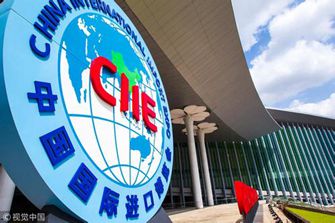
Wang Yiwei: China's import expo offers new prop to BRI construction
The first China International Import Expo starts to count down as it opens tomorrow with Chinese President Xi Jinping delivering remarks at the opening ceremony. Over 1,000 companies from 58 Belt and Road (BRI) countries will participate in the event to seek ways to achieve a more open and inclusive vision of world trade.
2018-11-06 -

Australian state of Victoria signs MoU with China on Belt & Road
Victoria became the first Australian state to sign a memorandum of understanding (MoU) with China's economic planning authority on the Belt and Road initiative following a signing ceremony in Victoria's capital city Melbourne, the Chinese Embassy in Australia said Friday.
2018-10-30 -
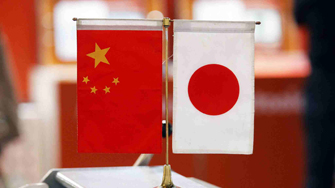
Wang Yiwei: Will Japan and China cooperate on the BRI?
Japanese Prime Minister Shinzo Abe is paying an official visit to China and is likely to express a positive attitude on the Belt and Road Initiative (BRI). Since Liberal Democratic Party Secretary-General Toshihiro Nikai came to China to attend the Belt and Road Forum for International Cooperation as Japan's representative last May, Japan has been positive on the BRI.
2018-10-29 -
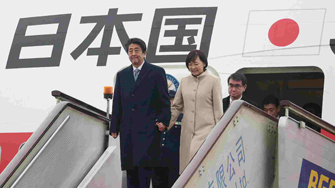
Guan Zhaoyu: Sino-Japanese relations to warm up by "B&R" pragmatic cooperation
Japanese Prime Minister Shinzo Abe pay an official visit to China from October 25 to 27, seven years after the Yoshihiko Noda's visit in 2011 and also the Japanese Prime Minister's official visit to China after seven years. According to previous reports, the topics under discussion between the two sides in this visit will be very broad. However, the author believes that the international cooperation between the “Belt and Road” and the third-party market is still worth paying close attention to.
2018-10-29 -
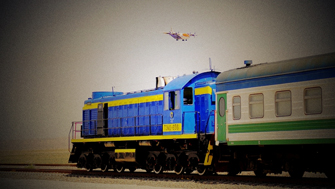
Uzbek-Afghan railway to put 'China-India Plus' plan on track
A key rail link extension project connecting Uzbekistan and Afghanistan could see collaboration between Beijing and New Delhi in what could be demonstrative of the "China-India Plus" model which was recently proposed by Beijing enabling the two Asian giants to cooperate in development and connectivity projects in other countries.
2018-10-15 -
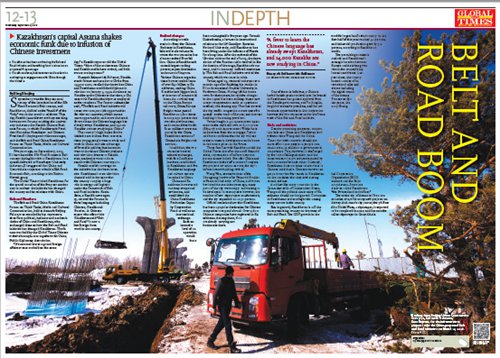
Kazakhstan’s capital Astana shakes economic funk due to infusion of Chinese investment
September 7 was the five-year anniversary of the introduction of the Silk Road Economic Belt concept, and Kazakhstan, dubbed as the "buckle" of the "belt," was in the mood to celebrate. That day, Kazakh journalists were busy traveling between two forums marking the anniversary in Astana: the Kazakh-Chinese Business Forum, to which Kazakhstan's President Nursultan Nazarbayev and Chinese President Xi Jinping sent video messages, and the Belt and Road China-Kazakhstan Forum on Think Tanks, Media an
2018-09-26 -

FT interview with Chinese vice-minister for foreign affairs on China’s vision for BRI
In a rare high-level interview on the topic, Le Yucheng, Chinese vice-minister for foreign affairs, has spoken at length to the Financial Times about China’s vision for the BRI.
2018-09-26 -
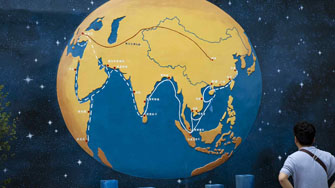
How 'Great Bay Area' contributes to a wider Maritime Silk Road
The 21st Century Maritime Silk Road China (Guangdong) International Communication Forum opened on Thursday in the coastal city of Zhuhai. Under the theme of "New Era, New Silk Road, New Image", the forum provides a chance to discuss more cooperation possibilities among countries along the 21st Century Maritime Silk Road.
2018-09-21 -
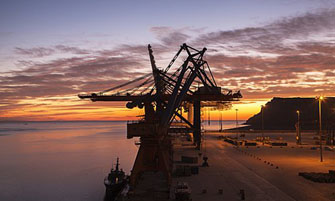
China open to adjustment of B&R projects based on countries' needs
China is open to adjustment of projects under the Belt and Road (B&R) initiative based on the interests of different countries, but China's cooperation with other countries via the initiative will undoubtedly continue in the future, experts and officials said on Thursday.
2018-09-14 -
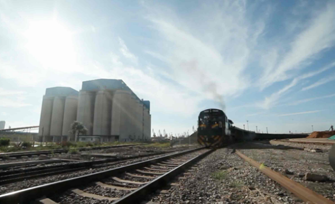
Belt and Road Initiative helps landlocked areas reach the sea
Two of China's port cities – Yingkou and Dalian – are planning to become the sea gate for cargo traveling through the inland China-Mongolia-Russia Economic Corridor – one of the six economic corridors under the Belt and Road Initiative (BRI). A food corridor connecting China and Russia was recently established in Yingkou to push that plan forward.
2018-09-12 -

Wang Yiwei: The Opportunity of the Belt & Road
Belt and Road Initiative (BRI) is not about infrastructure per se, it is about the enabling impact of infrastructure for economic growth and independence.
2018-09-10 -
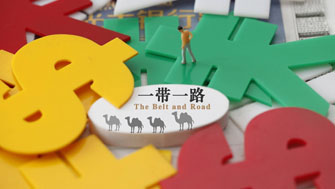
Wang Wen & Yang Tingting: Discrediting the Belt and Road Initiative as 'debt trap' is untenable
This year marks the fifth anniversary of the Belt and Road Initiative (BRI). While its spirit of peace, cooperation and mutual benefit as well as its principles of extensive consultation, joint contribution and shared benefits have been increasingly recognized, some foreign scholars constantly coined new terms to discredit the initiative.
2018-09-06 -
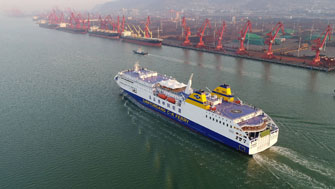
Zhao Minghao: How does the BRI contribute to policy coordination?
The Belt and Road Initiative (BRI) is celebrating its fifth anniversary. Its outstanding achievements largely depend on policy coordination, which is a kind of “soft connectivity” that can effectively support infrastructure construction such as railways, highways and oil and gas pipelines. At present, 103 countries and international organizations have signed relevant agreements with the Chinese government under the BRI.
2018-09-06 -
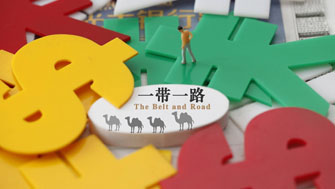
Discrediting the Belt and Road Initiative as 'debt trap' is untenable
This year marks the fifth anniversary of the Belt and Road Initiative (BRI). While its spirit of peace, cooperation and mutual benefit as well as its principles of extensive consultation, joint contribution and shared benefits have been increasingly recognized, some foreign scholars constantly coined new terms to discredit the initiative.
2018-09-06 -
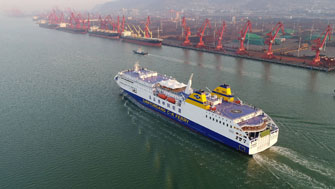
Zhao Minghao: How does the BRI contribute to policy coordination?
The Belt and Road Initiative (BRI) is celebrating its fifth anniversary. Its outstanding achievements largely depend on policy coordination, which is a kind of “soft connectivity” that can effectively support infrastructure construction such as railways, highways and oil and gas pipelines. At present, 103 countries and international organizations have signed relevant agreements with the Chinese government under the BRI.
2018-09-06 -

Wang Yiwei: BRI will help realize 'African Dream'
President Xi Jinping proposed the Belt and Road Initiative five years ago to bridge the development gaps among countries, improve peoples' living standards and promote sustainable, shared development. This makes the initiative a global cooperation network that connects countries by air, land, sea and cyberspace, and extends beyond the Eurasian continent to Africa and Latin America.
2018-09-05 -

Liu Zhiqin: The Belt and Road Initiative wins global respect
The Belt and Road Initiative (BRI) has been ongoing for five years. In the past few years, the BRI has achieved great progress and won notable respect from all over the world.
2018-09-05 -
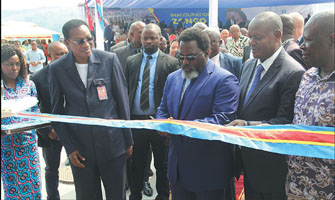
Wang Yiwei: BRI will help realize 'African Dream'
President Xi Jinping proposed the Belt and Road Initiative five years ago to bridge the development gaps among countries, improve peoples' living standards and promote sustainable, shared development. This makes the initiative a global cooperation network that connects countries by air, land, sea and cyberspace, and extends beyond the Eurasian continent to Africa and Latin America.
2018-09-05
























































































 京公网安备 11010802037854号
京公网安备 11010802037854号





